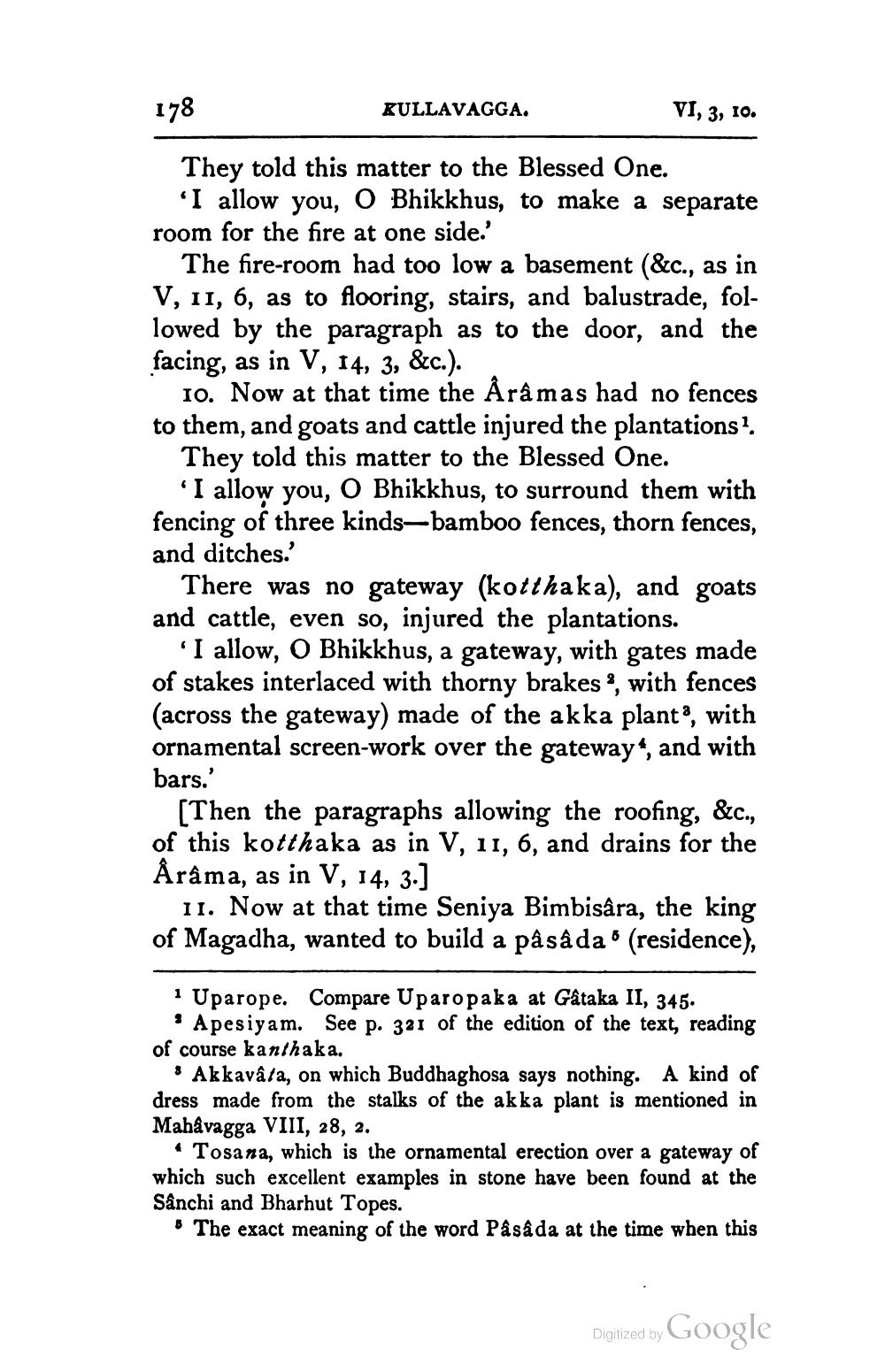________________
178
They told this matter to the Blessed One. 'I allow you, O Bhikkhus, to make a separate
room for the fire at one side.'
KULLAVAGGA.
VI, 3, 10.
The fire-room had too low a basement (&c., as in V, 11, 6, as to flooring, stairs, and balustrade, followed by the paragraph as to the door, and the facing, as in V, 14, 3, &c.).
10. Now at that time the Arâmas had no fences to them, and goats and cattle injured the plantations1. They told this matter to the Blessed One.
'I allow you, O Bhikkhus, to surround them with fencing of three kinds-bamboo fences, thorn fences, and ditches.'
There was no gateway (kotthaka), and goats and cattle, even so, injured the plantations.
'I allow, O Bhikkhus, a gateway, with gates made of stakes interlaced with thorny brakes, with fences (across the gateway) made of the akka plant, with ornamental screen-work over the gateway, and with bars.'
[Then the paragraphs allowing the roofing, &c., of this kotthaka as in V, 11, 6, and drains for the Ârâma, as in V, 14, 3.]
11. Now at that time Seniya Bimbisâra, the king of Magadha, wanted to build a pâsâda (residence),
5
1 Uparope. Compare Uparopaka at Gâtaka II, 345.
Apesiyam. See p. 321 of the edition of the text, reading of course kanthaka.
Akkavâ/a, on which Buddhaghosa says nothing. A kind of dress made from the stalks of the akka plant is mentioned in Mahâvagga VIII, 28, 2.
Tosana, which is the ornamental erection over a gateway of which such excellent examples in stone have been found at the Sânchi and Bharhut Topes.
The exact meaning of the word Pâsâda at the time when this
Digitized by Google




